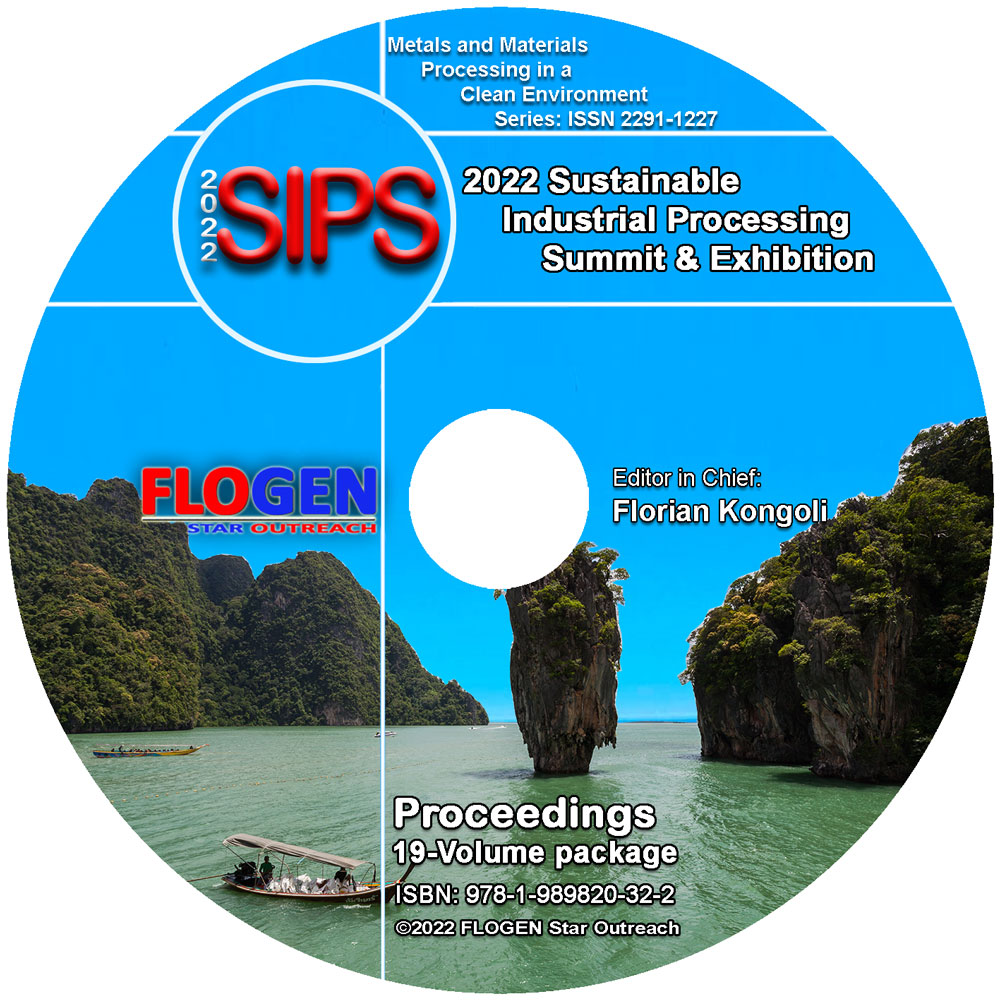2022-Sustainable Industrial Processing Summit
SIPS2022 Volume 19 Intl. Symp on Technological Innovations in Medicine and Covid19 and Infectious Diseases
| Editors: | F. Kongoli, F. Murad, T. Yoshikawa, S. Waldman, J. Ribas, S. Hirano, D. Joseph, R. Guerrant, W. Petri, H. Inufusa, H. Yedoyan, S. Heysell. |
| Publisher: | Flogen Star OUTREACH |
| Publication date: | 22 December 2022 |
| Pages: | 130 pages |
| ISBN: | 978-1-989820-70-4(CD) |
| ISSN: | 2291-1227 (Metals and Materials Processing in a Clean Environment Series) |

CD shopping page
Transport Oncophysics and Silicon-Based Medicine
Mauro Ferrari1;1UNIVERSITY OF WASHINGTON, SEATTLE, Washington, United States;
Type of Paper: Plenary
Id Paper: 511
Topic: 65
Abstract:
The advent of novel engineering technologies affords unprecedented advances toward long-elusive objectives of medical research. Individualized medicine responds to the basic but generally unattainable question of identifying the right therapy, reaching the right therapeutic target in the body at the right time, and securing immediate feedback as for its efficacy and undesired collateral effect. Finally, individualized medicine appears to be a credible general objective in many pathologies, owing to the integration of classical disciplines of clinical medicine, methods of molecular biology, and novel technology platforms.
Nanotechnologies are of great interest in the context of the drive toward individualized medicine, and may prove to be the necessary catalyst for its large-scale implementation. In this talk I will focus on nanoporous-silicon-based approaches for the individualization of medical intervention: multistage vectors for the preferential localization of therapeutic agents; injectable nano-particle generators for the therapy and prevention of metastatic cancer.
While these novel platforms engender direct clinical applications, at the same time they afford the formulation of novel frameworks and hypotheses for the basic understanding of pathological processes. In particular, multistage particulates are the probes that afford the exploration of a new perspective of cancer, that is, that the unifying aspect of the canonical ‘hallmarks of cancers’ all relate to dys-regulation of mass transport at scales including the molecular, cellular, microenvironmental, and systemic. These considerations are the starting point for “Transport OncoPhysicsâ€.